Hippocratic and Ancient Chinese
Concept of Health and Disease
Elements of Greek
Elements of Chinese
According to Hippocrates, health is the result of the harmonious balance and blending of the four humors blood, phlegm, black bile and yellow bile and four elements earth, air, fire and water. According to Huang Di Neijin, the five phases of yin and yang are linked by relationships of generation and destruction. Patterns of destruction, as represented by interrupted arrows, may be summarized as follows: water puts out fire; fire melts metal; a metal ax will cut wood; a wood plow will turn the earth; an earthen dam will stop the flow of water. The cycle of generation, as represented by uninterrupted arrows, proceeds as water produces the wood of trees; wood produces fire; fire creates ash or earth; earth is the source of metal; when metals are heated they flow like water.
*
It is the most important ancient book of Chinese medicine and said to have been compiled by the mythical Yellow Emperor 黃帝. It consists of two parts, the Suwen 素問 "questions of fundamental nature" and the Lingshu 靈樞 "spiritual pivot”
The Neijing departs from the old shamanistic beliefs that disease was caused by other worldly influences. Instead the natural effects of diet, lifestyle, emotions, environment, age and heredity are the reason diseases develop.
The universe is composed of various forces and principles, such as yin and yang, qi and the five elements (or phases). These forces can be understood via rational means and man can stay in balance or return to balance and health by understanding the laws of these natural forces. Man as is a microcosm that mirrors the larger macrocosm. The principles of yin and yang, the five elements, the environmental factors of wind, damp, hot and cold and so on that are part of the macrocosm equally apply to the microcosm that is man.
Reference : http://en.wikipedia.org/wiki/Huangdi_Neijing (From Wikipedia.org)



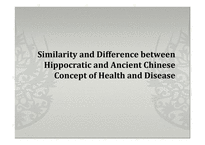
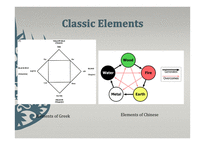
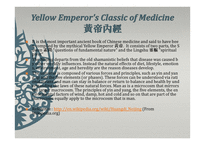
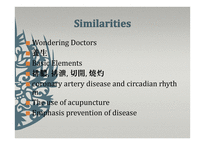
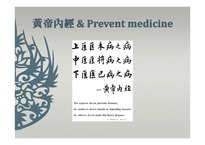
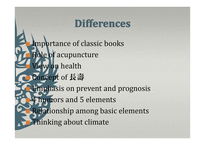
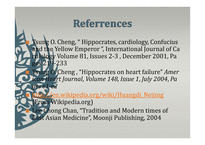
 분야
분야


